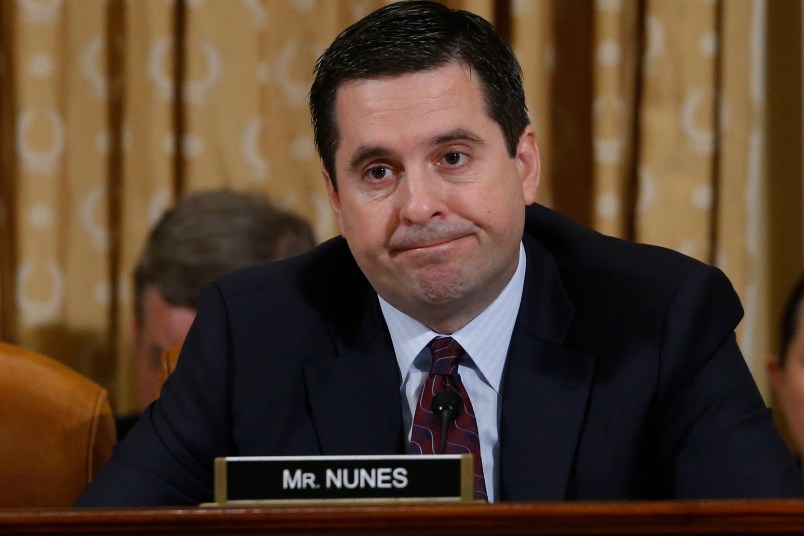Tierney Sneed contributed reporting.
Republican lawmakers on Capitol Hill were forced Tuesday to grapple with the Trump administration’s first major personnel crisis—less than a month into President Donald Trump’s tenure at the White House—after Michael Flynn resigned from his role as national security adviser.
Some congressional Republicans instinctively worked to protect and defend Trump, praising the President for booting Flynn from the administration and shifting focus to leaks of information about Flynn’s calls with the Russian ambassador to the U.S.
Flynn had several phone conversations with the diplomat before Trump’s inauguration, during which he reportedly discussed U.S. sanctions against Russia. Both Flynn and the Trump administration initially denied that Flynn discussed sanctions on the call; however, after several news outlets reported last week that Flynn did in fact discuss the sanctions, Flynn stopped denying that he discussed the issue and conceded he could not be sure whether he talked about sanctions.
Other Republicans seized on Flynn’s resignation to call for investigations into his calls to Russia and their implications for the Trump administration’s approach to Russia and Vladimir Putin.
In a Tuesday morning tweet, Trump appeared to downplay Flynn’s resignation with a complaint about what he called “illegal leaks coming out of Washington”:
The real story here is why are there so many illegal leaks coming out of Washington? Will these leaks be happening as I deal on N.Korea etc?
— Donald J. Trump (@realDonaldTrump) February 14, 2017
Rep. Devin Nunes (R-CA), chair of the House Intelligence Committee, jumped on board soon afterward and called for a probe into leaks about Flynn’s communications with Russian officials. He did not push for a probe into what the White House knew about those communications, however.
“I want to hear from the FBI as to how this got out,” Nunes told reporters, according to CNN. “We don’t even know if this is true. We just know this from press reports.”
Sen. David Perdue (R-GA) indicated to reporters on Capitol Hill that he was not concerned Flynn had remained in his role for more than two weeks after the Justice Department reportedly warned the White House about the content of his calls with the Russian ambassador.
“That has nothing to do with his judgement,” Perdue said when asked if that time gap made him concerned about Trump’s judgement. “It’s an unfortunate circumstance. It’s been resolved. And we’re going to move forward.”
Asked if there should be an investigation in the wake of Flynn’s resignation, Perdue said he had “no idea.”
Sen. John Hoeven (R-ND) similarly demurred when asked about the potential for an investigation. He told reporters that Congress needs “to see what the White House says” before determining next steps. Sens. Cory Gardner (R-CO) and Mike Rounds (R-SD) told reporters that they would need more information before determining whether a probe is necessary, too.
House Oversight Committee Chair Jason Chaffetz (R-UT) said that panel would not launch an investigation into the events leading up to Flynn’s resignation, noting that the subject would fall under the Intelligence Committee’s purview instead.
While those GOPers were hesitant to commit to a potential probe, many others were quick to determine that Flynn’s communications with Russia must be investigated in some form.
“I want to know, did General Flynn do this by himself or was he directed by somebody to do it?” Sen. Lindsey Graham (R-SC) said on CNN. “I think Congress needs to be informed of what actually General Flynn said to the Russian ambassador about lifting sanctions.”
Sen. John McCain (R-AZ) also said in a statement that Flynn’s resignation “raises further questions about the Trump administration’s intentions toward Vladimir Putin’s Russia.”
Sen. Roy Blunt (R-MO), a member of the Senate Intelligence Committee, said that his committee should interview Flynn himself about exactly what went down.
“I would think that we should talk to Gen. Flynn very soon and that should answer a lot of questions,” he told KTRS radio. “What did he know? What did he do? And is there any reason to believe that anybody else knew that and didn’t take the kind of action they should have taken?”
Sen. Richard Burr (R-NC), the chair of the Senate Intelligence Committee, confirmed to reporters that the panel would investigate the circumstances surrounding Flynn’s resignation, but that they would do so “in private.”
Other GOP senators concurred that the Senate Intelligence Committee, rather than an independent panel, should be looking into the matter.
“The Intelligence Committee is already conducting an inquiry. We’ll continue to do so. We’ll look into all aspects of Russia’s first hacking of the Democratic National Committee and John Podesta’s email, but also their attempts to influence American democracy, just like they’ve been trying to influence Western democracy,” Sen. Tom Cotton (R-AR) told reporters on Tuesday.
The No. 2 Republican in the Senate, John Cornyn (R-TX), told reporters that his “assumption is that the intelligence committees will conduct that investigation.”
While Sen. Bob Corker (R-TN) said that the Intelligence Committee is the “right venue” for such a probe, he did indicate some openness to launching a new investigative committee that would look at the full slate of allegations about recent Russian interference in U.S. politics.
“I do think that there needs to be a fulsome investigation on all angles relative to the nefarious activities that were taking place with Russia beginning in March, but even going back before that time,” he told reporters, presumably referring to when WikiLeaks began to publish stolen emails from Hillary Clinton’s private email server. “I haven’t come to a conclusion as to the best way for that to occur, but I know we gotta do it soon.”
“This heightens that obviously,” he added. “I know there’s mounting frustration at the pace of these activities, and so, I’m open to looking at a way to make sure that all of us, and the American people, understand everything that’s occurred relative to their nefarious activities and the relationships that they have here.”










